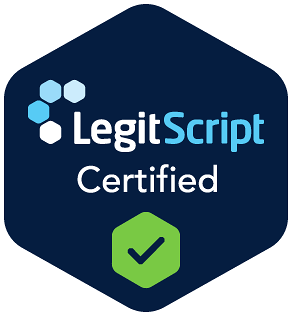Discover Your Potential
HEALING WITH COMPASSION
Helping individuals recover from addiction for over 50 years.
"*" indicates required fields
Treating Addiction Since 1970
One Of New Jersey’s Original Drug
Rehab Programs
We offer all levels of care whether you are looking for detox, residential drug rehab treatment, intensive outpatient treatment, relapse prevention, or one of our many treatment programs. The Discovery Institute provides around the clock care in the most effective environment available to support long-term recovery and sobriety.

Medical Detox
We provide detox in New Jersey, which ensures that our clients will have the safest and most comfortable experience possible.

Residential Treatment
Interested in learning more about residential treatment centers for addiction or mental health for men? Learn more about our inpatient rehab program and how we can help.

Intensive Outpatient
Discovery Institute’s Intensive Outpatient Program offers drug and alcohol addiction treatment for addicts that need to live at home while getting help.

Relapse Prevention
We work with each of our clients to create a strong drug and alcohol relapse prevention plan that lasts throughout treatment. Relapse can affect people’s lives at any stage of recovery.

Family Support Programs
When an addict or an alcoholic enters treatment, their family is often left behind to clear up the wreckage of active addiction. Many families don’t know where to begin.

Therapy Programs
Therapy is one of the biggest parts of addiction treatment. Our clients spend most of their day in various kinds of therapy to address their issues in the addiction community with their peers.
Rediscover Yourself at
Discovery Institute
Testimonials
From
Our Community
Very nice facility, great staff, and well-kept program. All your needs will be accommodated, and the hospitality is superb. Highly recommend this program to anyone in need of a new start.
Koby C.
If you want to get sober and get your life and dignity back, walk through the doors at Discovery.
Manny G.
Met good supportive peers and staff great place for recovery and new way of living.
John W.
My experience was amazing, and I cannot thank everyone there enough. You will all forever be part of my life for helping me get my life together.
Eric M.
If your looking for a place to get help and get the attention you need Discovery is the place to go, Discovery changed my life.
Ramon D.
Very nice facility, great staff, and well-kept program. All your needs will be accommodated, and the hospitality is superb. Highly recommend this program to anyone in need of a new start.
Koby C.
If you want to get sober and get your life and dignity back, walk through the doors at Discovery.
Manny G.
Met good supportive peers and staff great place for recovery and new way of living.
John W.
My experience was amazing, and I cannot thank everyone there enough. You will all forever be part of my life for helping me get my life together.
Eric M.
If your looking for a place to get help and get the attention you need Discovery is the place to go, Discovery changed my life.
Ramon D.
Very nice facility, great staff, and well-kept program. All your needs will be accommodated, and the hospitality is superb. Highly recommend this program to anyone in need of a new start.
Koby C.
Specific Topics We Are Often Asked About
Learn About
Treatment & Rehab
Whether you are looking for help for yourself or for a loved one, we are here to help you find the best care possible. We are able to answer any question you may have regarding addiction treatment or mental health treatment. Out certified addiction counselors can provide free evaluations and offer trusted guidance for you and your family.
Discovery Institute believes that for individuals to stop using drugs and alcohol, our rehab in NJ is most successful when the client, family system, and social support network are integrated.
Discovery’s experiences in helping individuals seek recovery from drugs and alcohol has taught us there is more than one approach that can be successful. For this reason, Discovery has incorporated such components as group and individual therapy, educational seminars, and an active involvement of the 12 steps.
For those who need it, residential treatment is provided in our Marlboro, New Jersey location by a professionally supervised community of recovering peers. In this structured setting, clients work together (with staff guidance) to develop a capacity for the recognition, expression, and understanding of their drug and alcohol problems.
Our clients also gain the skills that are necessary to change negative thinking patterns and behaviors. Most importantly, they recognize that their addiction has not left them alone.
Discovery accepts most major insurance policies! Depending on your health plan, your addiction treatment costs may be completely covered with no out of pocket costs to you. Our addiction professionals are available to provide a free evaluation of your health insurance policy to see what programs and services are covered. Whether you have health insurance or not, we would love to speak with you on the phone and help you evaluate your financial situation to guide you to the best options for care.
While The Discovery Institute works with individuals across the nation, we also cater to local & nearby residents in several areas. Here are a few of the most common locations our clients come from:
- New Jersey
- Monmouth County, NJ 07702
- Marlboro, NJ 07746
- Elizabeth City, NJ 07202
- Jersey City, NJ 07302
- Newark City, NJ 07175
- Paterson City, NJ 07503
- Woodbridge Township, NJ 07064
- New Brunswick, NJ 08901
- Near Rutgers University, NJ 08904
- Edison, NJ 08817
- Cherry Hill, NJ 08033
- Trenton, NJ 08611
- Manalapan Township, NJ 07726
- Brick Township, NJ 08723
- Staten Island, NY 10304
CONTACT US
Find out how we can help
Our compassionate counselors are standing by to answer any questions you may have. After helping thousands of people over the last 50 years, we have the resources to help you and your family and all your individual needs.
We Provide Treatment for a Variety of Substances
LEARN MORE ABOUT ADDICTION

Alcohol Detox Treatment Program
Detox is necessary when an individual is unable to control the amount they drink and may drink daily or binge on high quantities of alcohol. While many people do not feel like they need alcohol detox, it may be necessary to conquer addiction. Alcohol drug-related substances are one of the most socially acceptable, prevalent substances used in our society.
























